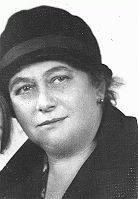You searched for: 在线炒股配资系统快速搭建【TG���������@EK7676】平台包网搭建在线炒股配资系统快速搭建【TG���������@EK7676】平台包网搭建18tDv7uOwe
<< Previous | Displaying results 181-190 of 246 for "在线炒股配资系统快速搭建【TG���������@EK7676】平台包网搭建在线炒股配资系统快速搭建【TG���������@EK7676】平台包网搭建18tDv7uOwe" | Next >>
-
Harry Toporek
ID CardHarry was one of eight children born to a large Jewish family in the Polish town of Lask, 18 miles southwest of Lodz. The Toporeks operated a tannery. Harry attended a public school in the mornings and a religious school in the afternoons. After graduating from secondary school, Harry helped his family in the tannery. 1933-39: On Friday, September 1, 1939, Germany invaded Poland, and by Sunday German planes began bombing Lask. Harry and his family couldn't fight the planes so they fled into the fields.…
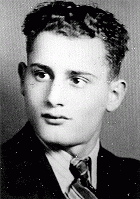
-
Mendel Felman
ID CardOne of seven children, Mendel was raised in a Yiddish-speaking, religious Jewish home in Sokolow Podlaski, a manufacturing town in central Poland with a large Jewish population of about 5,000. Mendel's parents ran a grain business. As a teenager, Mendel liked to play chess, and he completed his public schooling in Sokolow Podlaski in 1931. 1933-39: After finishing middle school, Mendel went to work in his parents' business. When he was 18, he fell in love with Frieda Altman who was in the same Zionist…
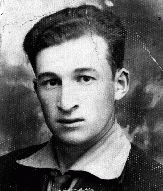
-
Sevek Fishman
ID CardSevek's religious Jewish family owned a haberdashery business in Kaluszyn, a suburb of Warsaw. The oldest of six children (three boys and three girls), Sevek completed high school and was then apprenticed to a tailor. 1933-39: Each Friday, before the Sabbath began, Sevek's mother asked the neighbors if they had enough food for the Sabbath. If they didn't, she brought them a meal. Although Sevek belonged to a non-religious Zionist group, Ha Shomer ha-Tsa'ir, and didn't wear a skullcap like religious Jews,…
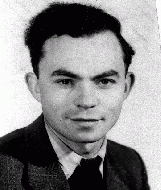
-
Majlech Kisielnicki
ID CardThe second of three children, Majlech was born to Jewish parents living 35 miles east of Warsaw in the small, predominantly Jewish town of Kaluszyn. Majlech's father owned a wholesale grocery store, a restaurant and a gas station, all of which were located on the heavily traveled main road. Majlech attended public elementary school and also received religious instruction. 1933-39: Majlech and his pals, Mindele, Sara and Adam loved to discuss politics. They'd heard the Polish propaganda claiming that…
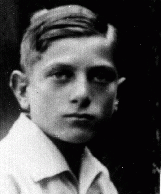
-
Edek Blonder
ID CardThe Blonder family lived in a two-room apartment in the back of a store. Edek was the third of eight children. His father eked out a meager living by tutoring students in Jewish subjects, and beginning in 1930 he worked distributing food vouchers to the poor. 1933-39: After graduating from secondary school, Edek was invited to play soccer professionally on the local Club Maccabi team, which was part of a Jewish soccer league. Club Maccabi arranged for him to attend trade school to learn cabinet making at…
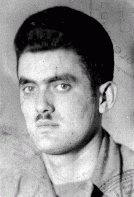
-
Leon Kusmirek
ID CardLeon was the oldest of two boys born to a Jewish family in Zgierz, a central Polish town in the heart of Poland's textile producing region. The family lived at 15 Konstantynowska Street. Leon's father worked at a textile factory. At age 7, Leon began attending public school in the morning and religious school in the afternoon. 1933-39: On Friday, September 1, 1939, Leon's mother had just returned from the market when the family saw German planes. On Sunday they flew over again, lower, panicking the city.…
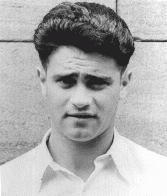
-
Frederick Fleszar
ID CardFrederick was the oldest of two sons born to Polish immigrants in Syracuse, New York. In 1922 Frederick's father, who was a musician, moved the family back to Poland where they settled in Poznan. There Frederick started public school and was accepted to the boys section of the prestigious Poznan Cathedral Choir. 1933-39: In 1933, at age 17, Frederick graduated from secondary school and enrolled in medical school at the university at Poznan. He sang with the choir for the last time the day he graduated…
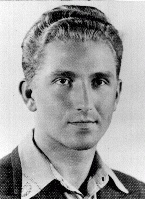
-
Shmuel David Bursztyn
ID CardRaised by Yiddish-speaking, religious Jewish parents in the town of Pultusk in central Poland, Shmuel married in the late 1890s and moved with his wife, Gisha, to the city of Warsaw. Shmuel owned and operated a bakery on Zamenhofa Street. In 1920 the Bursztyns and their eight children moved to larger quarters in a two-bedroom apartment at 47 Mila Street in the Jewish section of the city. 1933-39: By 1939 six of Shmuel's children were grown and on their own. Only his youngest son and daughter still lived…
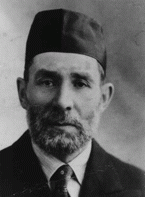
-
Gyula (Gyuszi) Brieger
ID CardGyula was also known as Gyuszi. He was born into a large religious Jewish family in the village of Nagyhalasz in northeastern Hungary. The Briegers spoke both Yiddish and Hungarian. After Gyula's mother died, his father remarried and the family moved to the town of Nyiregyhaza, where his father owned and operated a hardware store. Nyiregyhaza had a Jewish population of 5,000. 1933-39: Gyula was the second oldest son in a household of seven children. Nyiregyhaza was a rural town in which people still used…
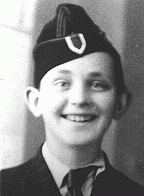
-
Wilma Schlesinger Mahrer
ID CardWilma was the oldest of two daughters born to German-speaking Jewish parents. She married Gyula Mahrer, a Hungarian Jew who had fought in the Hungarian army during World War I. The couple lived in the Hungarian capital of Budapest, where they raised two daughters. The Mahrers lived near their eldest daughter, Kornelia, who had married in 1928. 1933-39: Wilma's first grandchild, Maria, was born on Wilma's 55th birthday. By 1936 Wilma had five grandchildren, three of whom lived in Budapest with her daughter…
